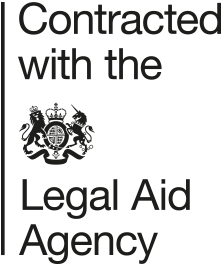What is Conveyancing Law?
Anyone who has ever bought or sold a house will be familiar with the word conveyancing. It’s an essential part of buying or selling a property and is something that requires expert knowledge.
In its most simple form, conveyancing is the transfer of the legal title to a property from one person to another. It may also involve the granting of an interest in the property or a legal liability, such as a mortgage or secured loan.
However, before this can be achieved, there is a process that needs to be followed.
Initial paperwork and draft contract by the seller’s solicitor
The buyer has made their offer, and the seller has accepted it. The solicitor engaged by the seller will draft the conditions of the sale. The contract will include the price and any specific instructions, such as any particular items that will be included in the sale. The seller is required to furnish a great deal of information about the property, which the solicitor will check before confirming that the seller has legal title to it, and so is able to legally sell the property.
Introductory enquiries from the buyer’s solicitor
Once the buyer’s solicitor has received the draft contract, they will check it, before making initial checks about the property and current owner. A number of enquiries will then be made to the seller’s solicitor. These questions will include any queries which have arisen from the draft contract, and may also include questions about the local area, any boundary disputes, and whether there are rights of way through the property.
Searches
The buyer’s solicitor is responsible for performing what are known as local searches. This involves requesting information from local authorities and other bodies about potential issues. These property searches include:
- Local authority searches to identify any charges on the property, and any restrictions on its usage.
- Land registry checks, which confirm that the seller has legal ownership of the property, and confirm the boundaries of the property.
- Checking for any flood risk, whether that is from coastal, river or surface water flooding.
- Water authority searches to check for any public drains, as they can cause problems should the homeowner want to extend or build.
- Chancel repair search to ensure that there is no liability to pay for church repairs.
- Environmental search, which checks for issues such as contaminated land, landfill sites, former and current industries, for example, mining, and radon gas hazards, among others.
Signing and exchange of contracts
Once the survey and local searches have been completed, the solicitors will negotiate the final terms of the contract. This will include the date that the sale is to complete. Once all parties are satisfied, both sign the contracts in the presence of their own solicitors, before they are exchanged.
Exchange is the point at which both parties are committed to the transaction, and breaking the contract will incur financial penalties and a liability for the other party’s costs.
If the property is to be purchased using a mortgage, then the buyer will also sign the mortgage deed.
Completion
Completion is when the legal right to the property passes from the seller to the buyer. Payment for the property reaches the seller, and keys are released to the buyer, who is able to take possession of the home.
Purchasing a home can be a stressful experience and, as can be seen, the conveyancing process is lengthy and complicated. Robinsons Solicitors’ specialist solicitors have extensive experience of ensuring that buying your home is as stress-free an experience as possible.








